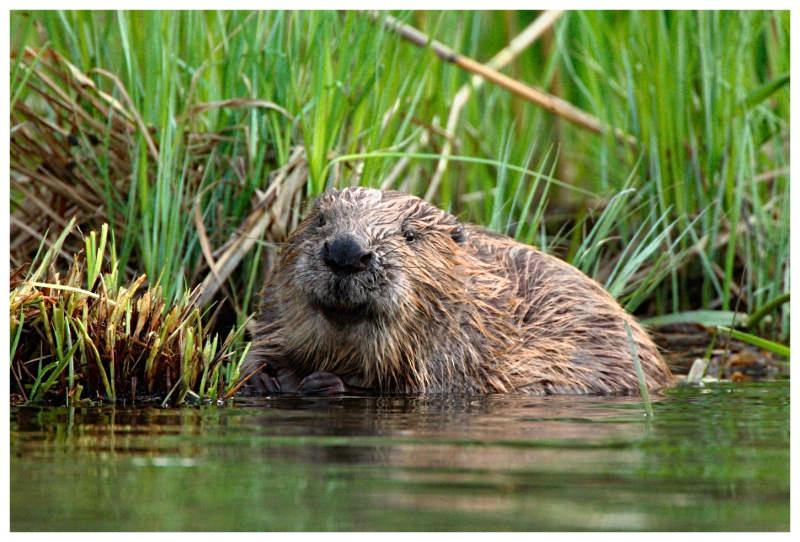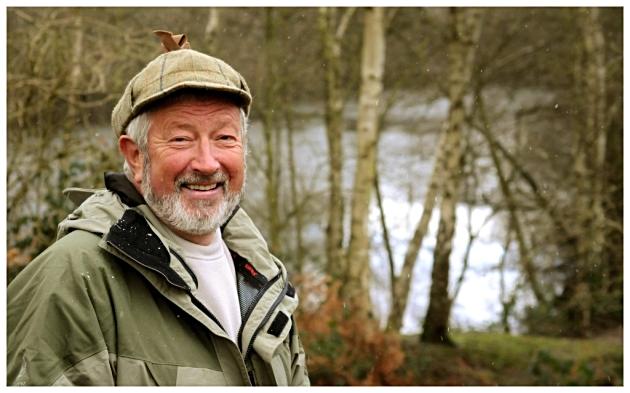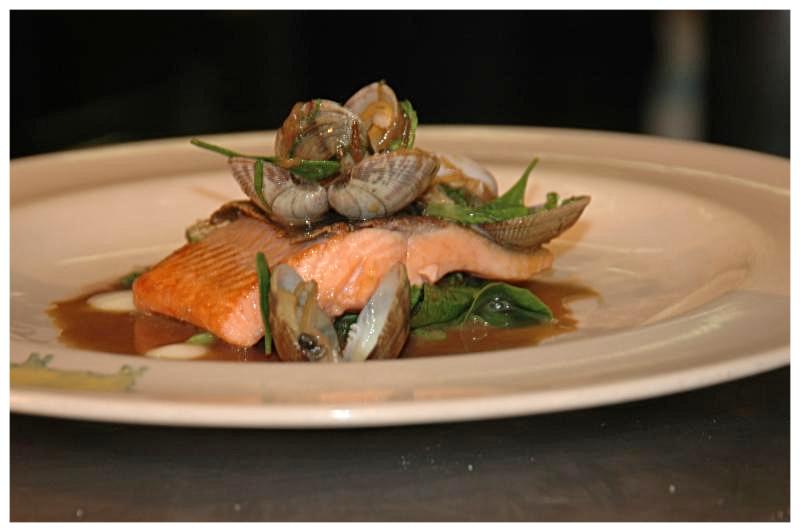Not wild about 're-wilding'
Greetings!
Sometimes
issues that concern us in the countryside, and the solutions or alleviations
that we propose to resolve those issues come back to bite us firmly on the arse
as others, with a different agenda, ride on our coat tails. Take re-wilding for
instance.
 It is interesting how a
particular word or phrase is able to become the currency of a particular cause
or set of beliefs. For a while sticking eco in front of anything worked a treat
if you wished to burnish the credentials of a person, movement or thing.
It is interesting how a
particular word or phrase is able to become the currency of a particular cause
or set of beliefs. For a while sticking eco in front of anything worked a treat
if you wished to burnish the credentials of a person, movement or thing.
Global warming and climate
change are clearly the big two that fall into this category. We have all
experienced it. Dear Customer: To help the fight against global warning we
will no longer be posting you a bank statement.
Now I'm perfectly happy with
that but be honest - it is all about a cost saving that drops straight to the
bottom line but by using the phrase 'global warming' you have taken the moral
high ground. Anyone who, for perfectly valid reasons still wants the paper
version, is suddenly against the proposition. But back to the rivers.
For some time now there are
plenty of us who have felt the best way to protect the chalkstreams for future
generations is to step around progress. Not avoid it. Not oppose it. But craft
a countryside that protects what we have from the downsides of progress and
rolls back the damage that progress has caused. Strangely we haven't had to do
anything radical or invent some fancy new initiatives because by some bizarre
twist of fate the European Union handed us the solution on a plate.
Younger readers will
probably not recall the agricultural excesses of what was back then the
European Economic Community of the 1980's. It seemed like every week we were
assailed by some new glut of products as farmers were paid to produce food
nobody wanted to buy. Nobody excepting the EEC who bought and stockpiled
millions of tons and gallons (sorry litres). We had wine lakes. Butter
mountains. Potatoes. Wheat. Olives. The list went on and on. So the solution
was a new policy: set aside. Farmers were paid to produce nothing. In the
topsy-turvy world of European economics it was cheaper to pay a farmer to do
nothing than do something so suddenly 10% of agricultural land was taken out of
production.
And what happens if you let nature
take over? It goes wild but in a good way. Suddenly there were hundreds of
thousands of acres free of the plough. Free of chemicals. Free for creatures,
animals and insects to thrive. Which they did. Saving the countryside was
simply as uncomplicated as doing nothing. On the chalkstreams the penny
dropped: the less we interfered the better. We needed to bend to the will of
nature rather than bend nature to our will. Wild was good. But somehow,
somewhere wild has become re-wilding, creating in an Animal Farm-like turn of
events. A whole new concept of its own, as if wild in itself was not good
enough. Now, not only do we have to return things to the wild but we have
to return them to a wildness that exists only in the imagination of a body or
group who have a particular cause to espouse.
I have absolutely no idea
why the re-wilders have taken beavers to their hearts, using the cover of
're-wilding' to promote a species that has been extinct from the British Isles
for at least six hundred years and probably longer in all but the remotest part
of the nation. But they have the ear of government. The recent press release
from Department for Environment, Food and Rural
Affairs extols the introduction of a pair Eurasian Beavers to Essex
in a project that will see this 'keystone species' who, if you believe what is
written in the text, save the county from the effects of global warming by
juxtaposing the life of a beaver in the huge expanses of Canada with life in a
4 hectare compound in East Anglia.
It really is ecological
madness. In a time when squeezing any money from any government body for even
the most basic of environmental project is all but impossible I simply dread to
think how much time and effort is being wasted in this pointless project. It involves,
if you care to know: the Anglian Eastern Regional Flood and Coastal Committee,
Department for Environment, Food and Rural Affairs, Environment Agency East
Anglia, Essex County Council, Essex & Suffolk Rivers Trust, Essex Wildlife
Trust and Natural England.
The time when beavers were
key is long past. They disappeared for a reason - the landscape they require,
for right or wrong, has disappeared. It will not be coming back any time soon.
Nor should the beavers
John
Wilson dies
I was very
sorry to hear that John Wilson died earlier in the week; he was really an
unlikely fishing celebrity. Did you know he started his professional life as a
hairdresser?
 John was born in Enfield,
London, where he fished on several local waters including the River Lea. When
hair proved to not be his thing he joined the Merchant Navy, then tried his
hand as a printer before opening his own fishing tackle shop in Norwich in 1971.
John was born in Enfield,
London, where he fished on several local waters including the River Lea. When
hair proved to not be his thing he joined the Merchant Navy, then tried his
hand as a printer before opening his own fishing tackle shop in Norwich in 1971.
I recall it well, tucked
down the tiny Bridwell Alley, when I was a student at the University of East
Anglia.
He was a prolific author
with over twenty books to his credit but his big break came in 1986 when the
first of the Go Fishing
series was commissioned by Anglia Television. Today angling shows are
two-a-penny but John's genius was to have a hit TV series on terrestrial
television when angling was desperately unfashionable and politically
incorrect. Quite how he secured his prime time slot year after year on Channel
4 I will never know but he kept the angling flame alive with his sheer
enthusiasm for our sport.
It is a while since I last
saw the programmes but if I recall it wasn't overly technical. Just a guy going
fishing sharing his passion for the sport - all the different aspects of it -
as it grew to cover locations all over the world. He, as he would admit, wasn't
the most elegant fly caster, but he was a regular on the chalkstreams with a
particular penchant for the Indian restaurant on Stockbridge High Street. The
last show was broadcast in 2009, the same year John was awarded an MBE.
John, voted as 'The Greatest
Angler of All Time' by readers of the Angling Times in 2004, died on 13th
November of a stroke in Thailand,
where he had lived since 2013. He was 75.
Sea bass
back on your menu
Good news
for those of you who like to catch a sea bass for your tea: you are no longer
an enemy of the people.
 The history behind this was
a botched, if worthy, attempt by the EU Council to arrest a dramatic decline in
sea bass stocks when they banned all recreational fishing for the species last
year. This came out of the blue for most of us, resulting in some considerable
head scratching when it transpired that the commercial sea bass boats were left
unaffected by the ban even though they take 25 fish for every 1 caught
recreationally.
The history behind this was
a botched, if worthy, attempt by the EU Council to arrest a dramatic decline in
sea bass stocks when they banned all recreational fishing for the species last
year. This came out of the blue for most of us, resulting in some considerable
head scratching when it transpired that the commercial sea bass boats were left
unaffected by the ban even though they take 25 fish for every 1 caught
recreationally.
It did seem incredible that
we were being banned from catching a publicly-owned fish for personal
consumption from public beaches but such is the power of the EU Common
Fisheries Policy.
However, it was soon proved
that recreational anglers took 85% fewer fish than the data supporting the ban
had purported.
So now a catch limit of one
fish (under 42cm) per angler per day is in force until the end of the year. But
watch this space as the rules for 2019, Brexit or no Brexit, are yet to be set.
Photo of the week
Gorgeous morning on the River Coln with
my friend and French agent Jean-Pierre. Two grayling, one on the dry and one on
a tiny nymph plus two accidental browns.

Enjoy the weekend.
Best wishes,
Simon Cooper simon@fishingbreaks.co.uk
Founder & Managing Director







